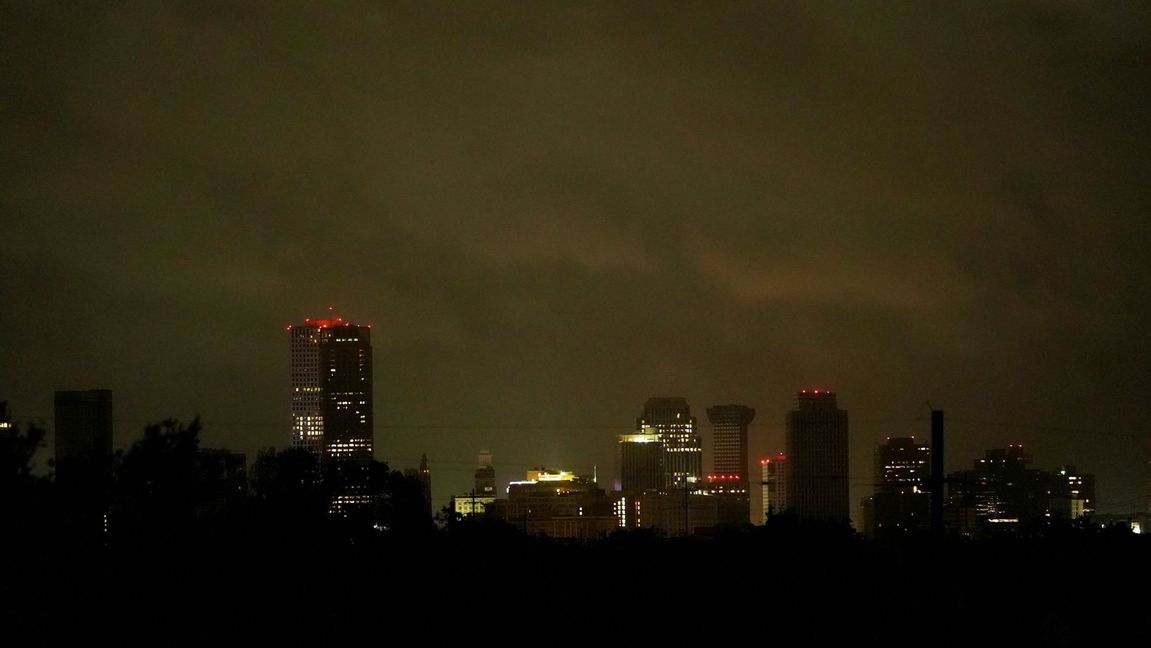
Here are some of AP’s Business Highlights. Topics include Hurricane Ida, the extraction of lithium from geothermal wastewater around California’s dying Salton Sea, S&P 500 and Nasdaq records, and reducing carbon emissions in the health care industry. Finally, the end of an era as Algeria became the last country in the world to stop selling leaded gasoline.
As Ida leaves Gulf, analysts foresee modest economic damage
WASHINGTON (AP) — With more than 1 million customers in Louisiana and Mississippi having lost power, Hurricane Ida is sure to take a toll on the energy, chemical and shipping industries that have major hubs along the Gulf Coast. But the impact on the overall U.S. economy will likely be modest so long as damage estimates don’t rise sharply and refinery shutdowns are not prolonged, economists say. The hurricane is expected to inflict a less severe financial impact than Hurricane Katrina did 16 years ago, thanks to a lower storm surge and New Orleans’ improved levee system, which is better able to withstand storm surges.
___
Lithium fuels hopes for revival on California’s largest lake
CALIPATRIA, Calif. (AP) — Demand for electric vehicles has shifted investments into high gear to extract lithium from geothermal wastewater around California’s dying Salton Sea. The ultralight metal is critical to rechargeable batteries. Despite widespread availability in the United States, Nevada has the country’s only lithium plant, and U.S. production lags far behind Australia, Chile, Argentina and China. California’s largest but rapidly shrinking lake is at the forefront of efforts to make the U.S. a major global player, though decades of economic stagnation and environmental ruin have left some residents on the Salton Sea’s receding shores indifferent or wary.
___
US health agency will prod hospitals to cut carbon emissions
WASHINGTON (AP) — The Biden administration is launching a new health office that will prod hospitals to cut carbon emissions, aiming to provide greener, more environmentally friendly medical care. Health and Human Services Secretary Xavier Becerra said Monday the new Office of Climate Change and Health Equity will also work with localities to mitigate harmful effects of climate change, such as seniors succumbing to excessive summer heat because their apartments lack air conditioning. Minority communities that often bear a disproportionate impact from environmental problems will get special attention. The health care industry is estimated to account for about 10% of U.S. greenhouse gas emissions.
___
S&P 500, Nasdaq notch more records even as the Dow slips
NEW YORK (AP) — Gains for several Big Tech stocks helped push the S&P 500 and the Nasdaq composite to more record highs on Wall Street Monday, even as weakness elsewhere in the market sent the Dow Jones Industrial Average and small-company stocks lower. Energy prices ended were mixed after shooting higher last week as Hurricane Ida headed for the Gulf Coast. Affirm soared 47% after the payments company announced a deal last week with Amazon to offer shoppers a buy-now-pay-later option that doesn’t involve credit cards. Bond yields edged lower. The yield on the 10-year Treasury fell to 1.28% from 1.31% late Friday.
___
UN hails end of poisonous leaded gas use in cars worldwide
BERLIN (AP) — The U.N. environment office says Algeria has become the last country in the world to stop selling highly toxic leaded gasoline. The U.N. Environment Agency said this marks the “official end” of the use in cars of a fuel that’s been blamed for a wide range of human health problems. Petroleum containing tetraethyllead, a form of lead, was first sold almost 100 years ago to increase engine performance. It was widely used for decades until researchers discovered that it could cause heart disease, strokes and brain damage. UNEP cited studies suggesting that leaded gas caused measurable intellectual impairment in children and millions of premature deaths. Most rich nations started phasing out the fuel in the 1980s.
See also: Astronaut gets special ice cream delivery for 50th birthday
See also: Explainer: How dangerous is Afghanistan’s Islamic State?